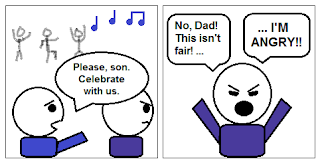During 2014 I decided to reacquaint myself with Jesus by reading the Gospel accounts. Interspersed were topical readings of the Gospels: parables told by Jesus, prophecies fulfilled by Jesus, and miracles performed by Jesus. I ended the year reading John's Gospel account. John's account differs greatly from the accounts of Matthew, Mark, and Luke both in style and in content. It seems like John delves deeper into the nature of Christ, focusing more on who he was/is rather than what he did while here on earth. John records various “I am” statements made by Jesus which help us understand even more his importance in our lives.
- In John 6, Jesus tells his disciples, “I am the bread of life,” indicating Jesus is our spiritual sustenance.
- In John 8, Jesus says, “I am the light of the world,” casting out darkness so that we are able to see and discern where we should go.
- In John 10, Jesus states, “I am the door of the sheep,” who lets his fold into good pasture. In this passage Jesus also says, “I am the Good Shepherd,” a leader who excels in his role in taking care of those who follow him.
- In John 11, Jesus boldly claims, “I am the resurrection and the life,” able to overcome the power of death by transforming the dead into the living.
- In John 14, Jesus tells his disciples, “I am the way, the truth, and the life.” Jesus is the path that leads to God. He is all truth and no deception. And he, once again, emphasizes that he embodies life.
- In John 15, Jesus says, “I am the vine,” explaining how he is the living structure that supports us, the branches.
Finally, returning to John 8, Jesus echoes the words his Father spoke to Moses so long ago. When commanding Moses to return to Egypt and lead his people out of captivity, God identified himself as “I AM” (Ex 3:14). When unbelievers once again scoffed at Jesus, mocking him for his wild claim that Abraham looked forward to the time when Jesus would appear, Jesus responds, “Before Abraham was, I am.”
I don't know that I will ever reach an understanding of the complexities of Christ's nature. How can Jesus be the son of God and also be God? Maybe I will get to ask him that myself one day. For now, I am glad to have access to the accounts laid down by early followers of Jesus, the first generation of Christians. As 2015 begins in just a few seconds, I pray that we all will take the time to remember Christ in this new year and draw ever closer to him in faith.
Scripture in the image and text is quoted from the King James Version of the Bible. The KJV is public domain in the United States. See version information here: https://www.biblegateway.com/versions/King-James-Version-KJV-Bible/#vinfo.


.png)
_PDimg-cropped.jpg)

